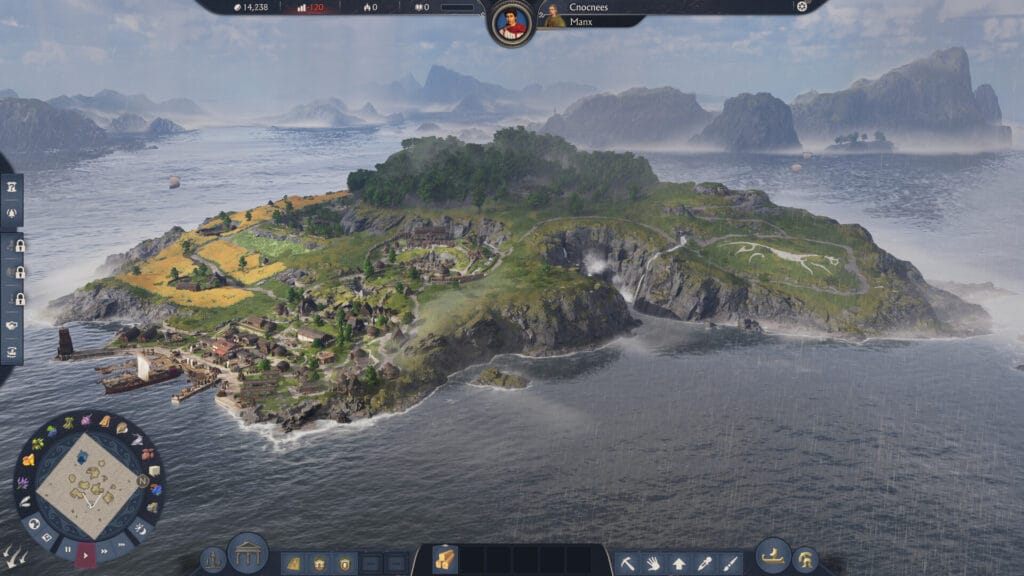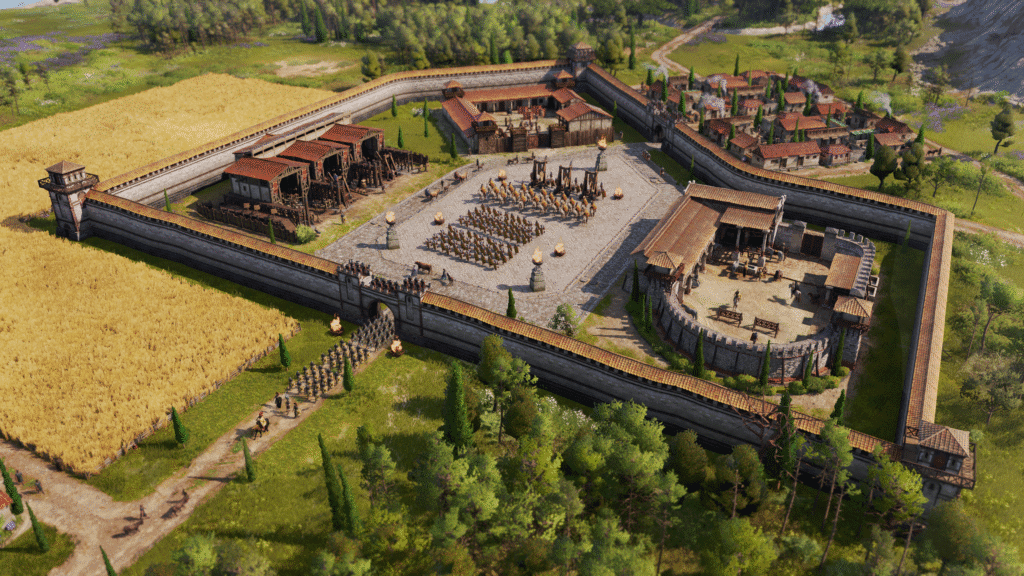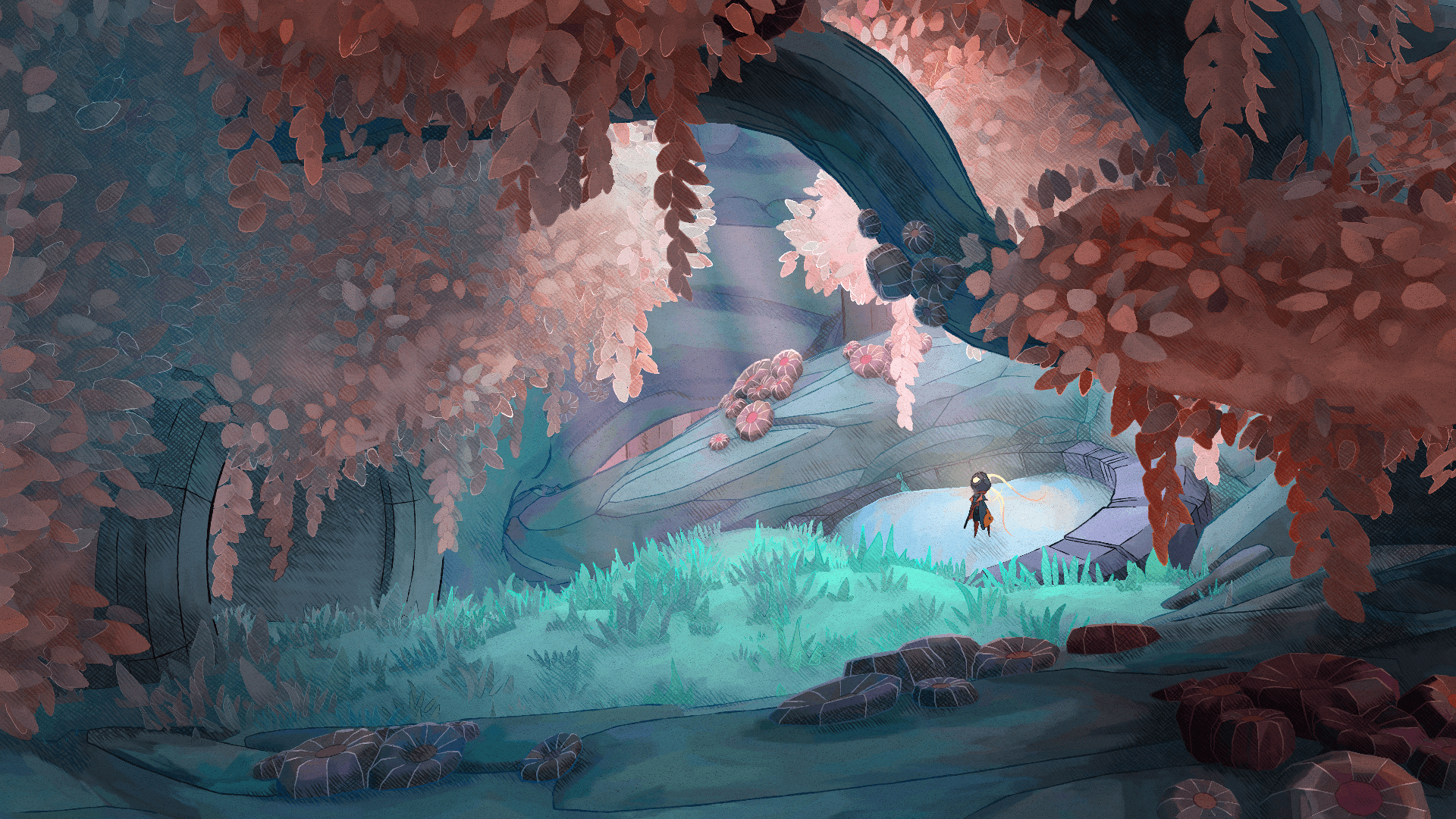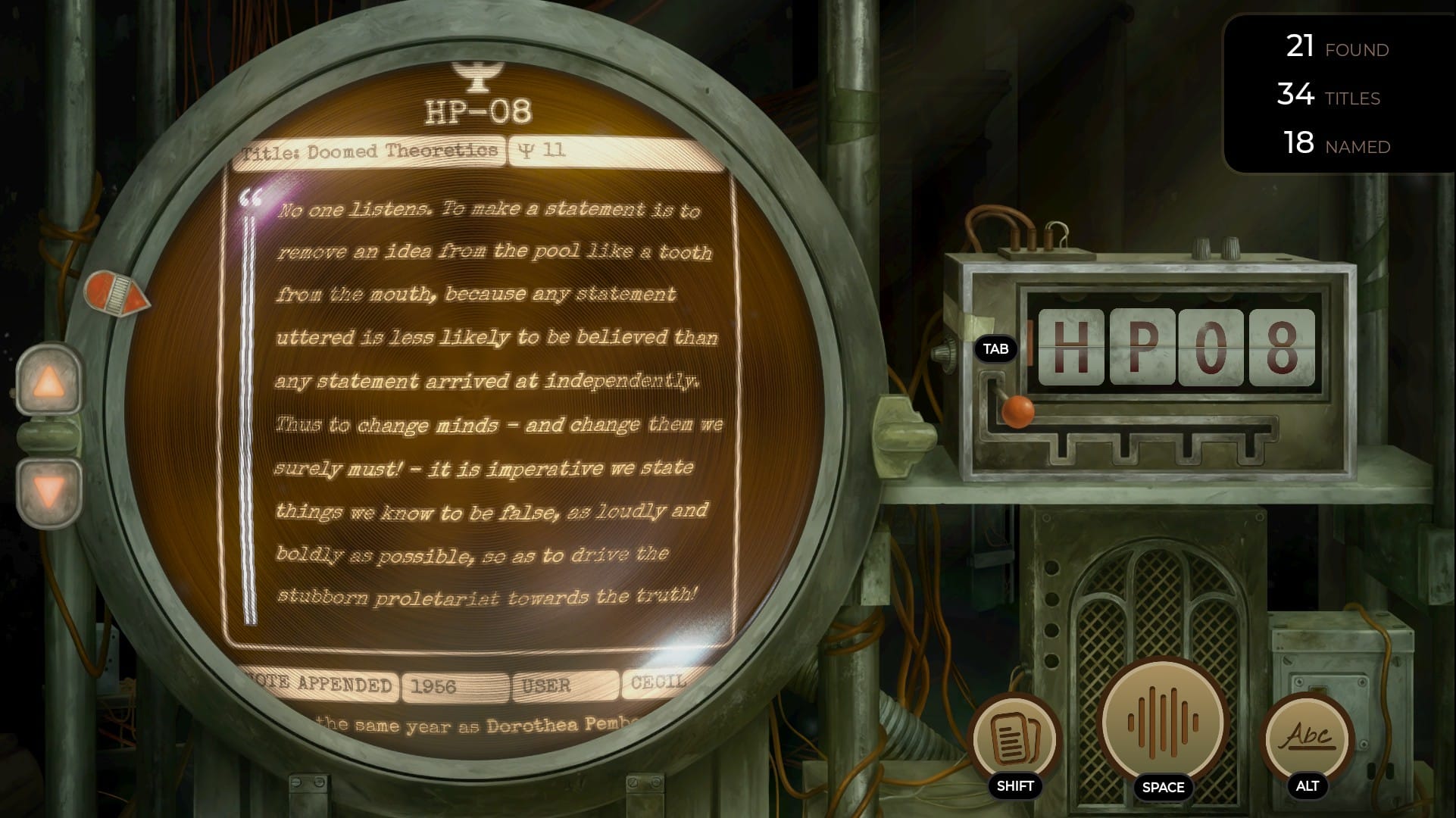Coming in from Ubisoft Mainz, Anno 117: Pax Romana is the sort of city builder I could see myself playing indefinitely. It isn’t as complex in terms of options as some of the other more intimidating options out there in the market – Europa Universalis V, I’m looking at you! – and it has historical context that I definitely took a liking to right away, even if it tries its best to sidestep some more controversial aspects like slavery.
First of all, it gets to business right away. After picking one of two starting characters, as an heir to a prominent but decadent Roman house, you are shipped off to the summer province of Latium in order to pump life into an abandoned settlement. It’s named after the emperor’s daughter Juliana, who Lucius, that’s the big man, is hoping to name as his successor to the throne, a first for Rome, having an empress.
Regardless of who you decide to go with, the slightly arrogant and naively aristocratic Marcus, or his older sister Marcia, it all boils down to the same gameplay structure. As soon as you touch down, you start dealing with the basic needs of the people, the liberti, former slaves, now freemen who are your basic workforce and are the ones you’ll want to most please after the emperor himself. Eventually, they develop into plebeians, all in a manner of real-world hours.
Dealing with them is relatively simple at the outset, especially if you’ve played any of the Anno games, especially Anno 1800: you set up crops, food production, housing, and eventually start to develop commerce with neighboring regions within the Empire. In order to get of it going is a matter of a couple of clicks in the interface, and that’s noticeably put together in a more streamlined fashion when compared to something like Civilization, as the developers have chosen to slowly trickle out functions instead of dropping you onto a full bar of buttons you’ll have no idea how to use.

Thankfully, even if you are lost in having only a few of those, no worries, as there’s an advisor who will suggest public works as needed, and in that, Anno 117 does a good job at keeping an eye on how you are doing without being overbearing in the way it nudges you into the right direction. Best of all, though, like the previous entry, there’s a narrative drive behind the more tutorial-focused few hours of the game, serving as a backdrop for everything that you are doing, which for me at least helped reign in my ambitions, at least when playing story mode.
Speaking of that, it’s surprisingly contained when it comes to your role as a governor. Instead of having you be a force of nature of sorts who controls basically all manner of toggles to your growing society, going way past just building but also religion and even the weather as some of Firaxis’ games tend to do, here you’re but a human, one with a luxury liner at your disposal at least. With that, you are tasked by the emperor with dealing with positively mundane situations, which, ironically, makes playing a game based on Romans but during peace times feel positively unique.
Not that it’s lacking any form of violence, mind you. You’re still going to have to keep an eye on your trade lines for the occasional pirate attacks and as you expand your territory up north to Albion – where Britain is today – it’s a good idea to have some footmen trained up. Then again, neither of those aspects is particularly robust, but instead of being a negative on the game, it’s one of its strengths, as it gives you room to happily manage your city and its purposefully menial matters, and for that, I’ve found myself being quite thankful.

As I touched upon at the start, Anno 117: Pax Romana is indeed a game I could see myself going for the long stretch, and that’s where infinite mode comes in. It does what its name suggests, that is, give you all the tools to continuously play without having to deal with any story, ever growing your domain and managing it to your heart’s content. In this, it’s a pleasurable experience for sure, and seeing how colorful and controllably detailed it all looks as your citizens are bustling about with you looking from above, it’s hard not to get immersed.
For as shaky as some of the news regarding Ubisoft have been, it’s good to see them giving some much needed attention to their other franchises outside of the usual suspects like Assassin’s Creed or the Tom Clancy universe. With Anno, internal studios like Ubisoft Mainz get to stretch their creative muscle in something more than action-oriented titles and they surely are incredibly talented at providing a fun tactical time with some light historical accuracy like this one.





